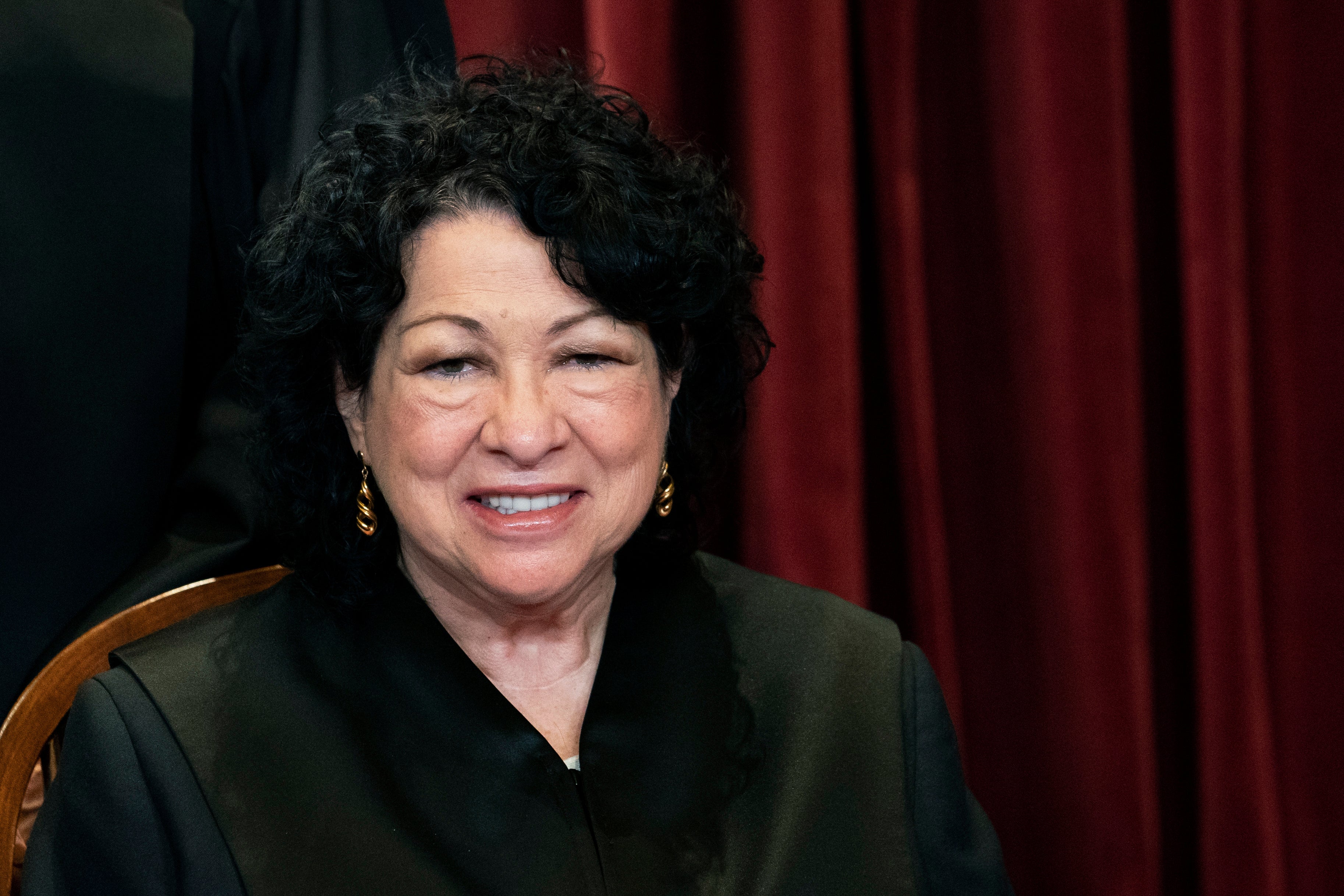Losing can 'get frustrating' says liberal Justice Sotomayor
Justice Sonia Sotomayor is encouraging citizens to work to change laws they may disagree with, such as a recent Texas law that limits access to abortions

Your support helps us to tell the story
From reproductive rights to climate change to Big Tech, The Independent is on the ground when the story is developing. Whether it's investigating the financials of Elon Musk's pro-Trump PAC or producing our latest documentary, 'The A Word', which shines a light on the American women fighting for reproductive rights, we know how important it is to parse out the facts from the messaging.
At such a critical moment in US history, we need reporters on the ground. Your donation allows us to keep sending journalists to speak to both sides of the story.
The Independent is trusted by Americans across the entire political spectrum. And unlike many other quality news outlets, we choose not to lock Americans out of our reporting and analysis with paywalls. We believe quality journalism should be available to everyone, paid for by those who can afford it.
Your support makes all the difference.Acknowledging the limits of her own influence on the law as a member of the Supreme Court s liberal minority, Justice Sonia Sotomayor on Wednesday encouraged citizens to work to change laws they may disagree with, like a recent Texas law that limits access to abortions.
Sotomayor, who appeared via Zoom at an American Bar Association event, answered a question from a law student by saying members of the public will not always like the results that courts reach.
“There's going to be a lot of disappointment in the law. All right, a huge amount as you study cases and look at outcomes that you disagree with. It can get frustrating. Look at me. Look at my stats, OK?” said Sotomayor, who is now one of three liberal justices on a nine-member court. Sotomayor, a nominee of President Barack Obama who has been on the court since 2009, added that at least she can dissent and “explain how I feel.”
After a summer break, Sotomayor and her colleagues are about to begin hearing arguments in person again next week after more than a year and a half of phone sessions because of the coronavirus pandemic. Already the court has on its calendar big cases, including ones involving guns and abortion, where Sotomayor might be expected to be in the minority of any decision.
She told members of the ABA audience that they have the power to change laws with which they disagree.
“Your ability is to go out there and work to change the law. Work to make those things that are important to you work better, be better," she said. “So, you know, I can't change Texas' law, but you can. You can and everyone else who may or may not like it can go out there and be lobbying forces in changing laws that you don't like," she said.
Sotomayor was also asked her advice for influencing decision making when her views are in the minority. Possibly foreshadowing what the liberal justices’ role might be this session, she said Justice Elena Kagan, another member of the court’s liberal minority, has a better answer than she does to that question.
“Justice Kagan believes that the best way to influence the majority is to try to narrow their holdings, to try to figure out how to keep the impact of a holding as narrow as possible,” Sotomayor said, so that there is an avenue later to “change the direction of a bad ruling.”